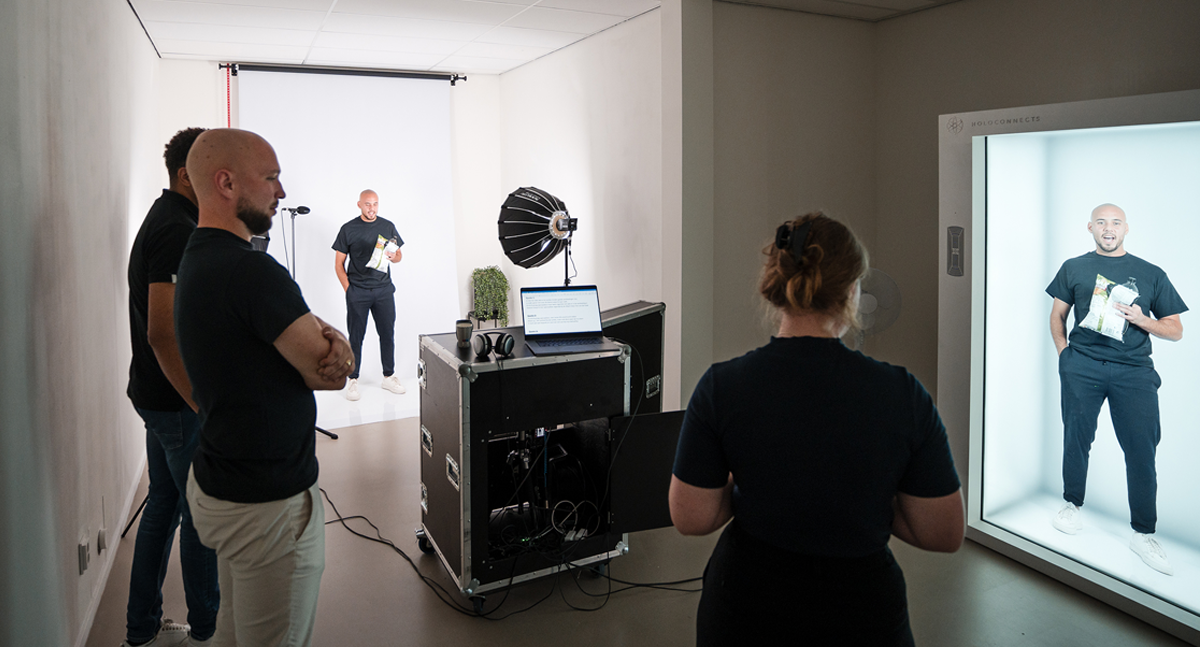

Can Spatial Computing Transform Care Delivery?

Health care and tech leaders continue to explore ways spatial computing can be used for everything from training clinicians to solving physician shortages and improving mental health access.
Now a Texas hospital has begun using holographic technology from the Dutch startup Holoconnects that enables patients to schedule a non-touch visit with their physicians or specialists.
The company’s Holobox hologram displays a lifelike 3D image of the physician and fosters a sense of connection with medical professionals even when they cannot be physically present, Steve Sterling, Holoconnects’ managing director of North America told Forbes. The company opened an office in Q4 last yar in Miami as an official U.S. launch of the technology.
Physicians using the Holobox can conduct virtual consultations with patients in distant hospitals or clinics and allow doctors to present realistic 3D images of procedures so patients can be better informed about their treatment plans, processes and expected outcomes. Hospital leaders can use the platform to speak with patients before discharge about their hospital experience.
Holoconnects says about 200 clients use its technology globally, including retail businesses, universities and organizations like UNICEF, the United Nations, Nike and BMW.
Meanwhile, San Diego-based Sharp HealthCare earlier this year launched its Spatial Computing Center of Excellence in collaboration with its electronic health record vendor Epic and the information analytics firm Elsevier, among others.
The center is exploring holographic technology to enhance patient care through the Apple Vision Pro augmented reality headset. Apple announced plans to cut back Vision Pro production this year due to poor sales, but reportedly remains committed to the technology.
“Spatial computing will fundamentally change how doctors practice medicine,” Tommy Korn, M.D., a board-certified ophthalmologist with Sharp Rees-Stealy Medical Group, said in a statement. “As we continue to explore the opportunities for applications on Apple Vision Pro, it will enable surgeons like me to transcend the limitations of traditional care, enhancing the safety and precision for our patients like never before.”



